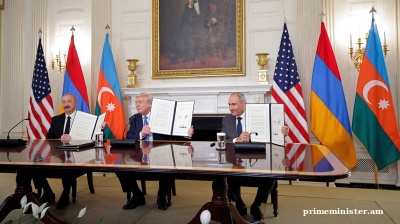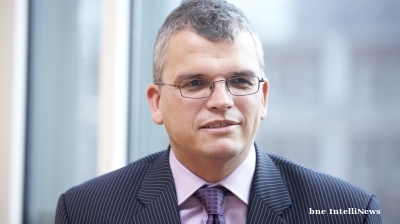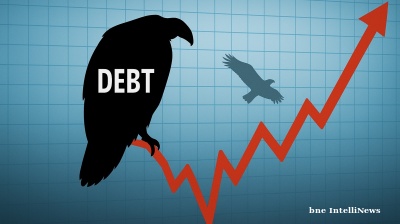International headlines have featured the word “war” with alarming frequency in recent days. It has come in different contexts, but inevitably involved Russia as a key party. That makes it all the more alarming because Russia is not just any other country, at least when it comes to wars.
The Polish government describes the ongoing standoff between its security personnel and predominantly Kurdish migrants, who are trying to get into the EU from Belarus, as an act of hybrid war against Poland waged by President Aleksander Lukashenko and, by extension, his senior partner, Vladimir Putin.
Poland and Baltic countries are now pondering triggering Article 4 of the NATO treaty which envisages consultations with other members of the alliance if "the territorial integrity, political independence or security of any of the parties is threatened."
Article 5 of the treaty is triggered if a member state is attacked but Article 4 is for less extreme situations, when members are merely threatened. Article 4 has so far been triggered four times, once by Turkey over the 2003 Iraq War, in June 2012 after the shooting down of a Turkish military jet by Syria, in October 2012 after Syrian attacks on Turkey and their counterattacks, and in February 2020 after increasing tensions arising from the Northwestern Syria offensive. Latvia, Lithuania, and Poland called an Article 4 meeting in March 2014 in response to the Crimean crisis, but the article was not triggered.
Meanwhile, US officials have been making unusually alarming statements about Russia’s alleged plans to re-invade Ukraine.
Finally, General Nick Carter, chief of the British Defence Staff, warned about soaring risks of a “miscalculation” that could result in a war between Russia and the West. bne IntelliNews columnist Mark Galeotti said in a recent opinion piece that there is no evidence of any Russian role in the Belarusian migrant crisis so far and the knee-jerk assumption that Russia behind every problem can lead to poor policy choices.
Although the border crisis in Belarus draws most attention, it is the standoff over Ukraine that lies at the heart of the story of rising tensions in Eastern Europe, which is why the bewilderingly radical American statements require special scrutiny.
“Our concern is that Russia may make the serious mistake of attempting to rehash what it undertook back in 2014, when it amassed forces along the border, crossed into sovereign Ukrainian territory and did so claiming falsely that it was provoked,” Secretary of State Antony Blinken said on November 10.
Blinken was reacting to the Russian military build-up in areas adjacent to Ukraine. It was the Americans who started sounding alarm bells. European allies and even the Ukrainian military initially took it sceptically. But the US shared intel and soon at least Ukraine and France were on board.
Russia's build-up near Ukraine is a repeat of similar developments last spring, when the US and its East European allies were also up in arms with what they saw as a threat of imminent Russian aggression.
The prehistory of this year’s seemingly perpetual crisis begins with the election of Ukrainian President Volodymyr Zelenskiy in the spring of 2019. His landslide victory over his predecessor, Petro Poroshenko, was in no small part achieved thanks to his promise of making peace with Moscow and ending the war against Russian-backed separatists in the east of the country.
At the beginning, things seemed to be on the right track. The Ukrainian and Russian leaders met for talks in Paris in December 2019, with French President Emmanuel Macron and German Chancellor Angela Merkel as mediators. Both sides expressed cautious optimism with the results, which soon showed – the war in the east of Ukraine came to a near-halt, with the lowest number of casualties since its beginning in 2014. There was even a big prisoner-of-war swap just before the long New Year’s holidays, a feather in Zelenskiy's cap.
But later on things became difficult. First, Zelenskiy encountered strong resistance from Ukraine’s own security community, backed by members of far right volunteer units that were openly sabotaging de-escalation agreements achieved in Paris. Secondly, he got sucked into the American domestic political cycle, as President Donald Trump tried to use him as a weapon against Joe Biden.
Finally, his popularity bubble began deflating. December 2020 polls showed the pro-Russian Opposition Platform/For Life (OPZZh) bloc overtaking Zelenskiy’s Servant of the People Party in electoral ratings.
Another development around the same time was Azerbaijan's stunning attack and victory over Armenia, which was achieved largely thanks to Bayraktar drones supplied by Turkey. That small and victorious war, which saw a Russian ally defeated, instilled hopes in Ukrainian security circles that it could be somehow repeated in Donbas.
But it might be the factor of Trump going and Biden coming, with his strong views on Ukraine, which contributed to Zelenskiy's abrupt change of tack with regards to Russia and the peace process.
It started with a full-blown assault on Putin’s man in Ukraine, Viktor Medvedchuk, the person behind the OPZZh bloc. That involved a criminal case against the man himself as well the closure of popular TV channels he was alleged to control via a proxy.
Simultaneously, Zelenskiy and his foreign ministry went on a PR offensive, whipping up international support for Ukraine’s Nato membership and, on occasions, even reprimanding Nato countries for not accepting Ukraine into the block. A series of programmatic publications by senior American diplomats and military on the website of Atlantic Council, a Nato-linked think-tank, suggested that the campaign was co-ordinated with circles close to the Biden administration.
In early March, several senior figures affiliated with the Atlantic Council recommended that the Biden administration grant Ukraine the status of “major non-Nato ally” and threaten Russia with activating a membership plan for Ukraine should the Kremlin fail to be more co-operative on peace settlement.
Inevitably during the same month, the effective cease-fire on the frontline in Donbas collapsed, while Russia started demonstratively amassing troops near Ukrainian borders. A series of strong-worded statements by Nato countries and the alliance itself followed, with the Russians retorting in kind. The standoff ended when both sides seemingly exhausted their strategic reserves of cockiness.
In the following months, Putin and other Russian officials began spelling out what they see as red lines with regards to Ukraine.
In broad terms, that pertains to preventing any talk about Ukraine’s Nato membership, which would bring the US-led alliance within 550 km from Moscow on the southern flank, in addition to Nato’s Baltic realm already beginning just 600 km away from the Russian capital in the west. In both cases we are talking about distances smaller than that between Washington and Boston.
When it comes to this perceived threat, Putin knows he is being supported by a vast majority of Russians, given the country’s historical experience of various deadly menaces from the West and the resulting paranoia.
There are also more specific red lines, such as not allowing Nato vessels anything remotely similar to American “freedom of navigation” operations in South China Sea aimed at antagonising Beijing.
Ever since the Kerch strait incident in 2018, when the Russian navy shot at Ukrainian vessels which tried to pass into the Sea of Azov, Russia has been on high alert for any similar developments. It didn’t help that hawkish American experts, such as former US army commander in Europe Ben Hodges, were actively pushing for Nato’s active role in containing Russia in the Black Sea theatre after Russia has re-establish itself in the Mediterranean.
Putin played it cool when the British warship HMS Defender sailed through what Russia deems its territorial waters off the coast of the occupied Crimea. But when on October 20 two nuclear-capable US bombers flew near Crimea, followed by US warships entering the Black Sea, Russia once again began a very demonstrative military build-up on strategic directions pointing towards Ukraine.
Another likely cause of the escalation was Ukraine successfully testing a Bayraktar drone, of Karabakh war fame, against Russian-backed forces in Donbas.
All of these developments went in parallel with the US, Ukraine and several other European countries, notably including Poland, trying to derail Nord Stream 2 – a gas pipeline project that could potentially create a multi-billion-dollar gap in the Ukrainian budget by starving the country of gas transit revenues.
They pinned their hopes on the election success of the German Green Party, which positions itself as a vocal opponent of the NS2. The party showed strong support during the election campaign, but in the last few months it was overtaken by the Social Democrat Party, who proceeded to win the election.
Eventually Biden decided it was no longer productive to keep antagonising Germany, a key Nato ally, so he struck a deal with Merkel, promising not to apply sanctions against NS2 in exchange for Merkel’s promise that Russia would not try to suffocate Ukraine’s economy by depriving it of gas transit.
But that does not mean the US wouldn’t use the period when Russia finds itself tied up by the Nord Stream certification process in Germany to push Putin’s red lines with regards to Ukraine. Or, in an ideal scenario, lure Russia’s paranoid leadership into making a disastrous political mistake that would swing public opinion in Germany and derail NS2 altogether. That might explain all the moves in the Black Sea and elsewhere which are designed to provoke a knee-jerk reaction in Moscow.
Enter Lukashenko – a certified joker in this house of cards. The hawkish wing of the Western political establishments finds it convenient to brand him as Putin’s obedient puppet. But Russia’s failure to agree on deeper integration with Belarus, which became apparent this autumn, is larger than life evidence that Lukashenko is playing his own game by pitting Russia against the West.
The crisis he manufactured on the Polish border allows him to exert pressure on neighbouring EU countries, which don’t recognise him as a legitimate president after 2020 elections. But he is also blackmailing Russia, which coerced him into drafting a constitutional reform that envisages him resigning from the presidential post.
In his quest to raise the stakes by making the riot at the border resemble war, the Belarusian dictator is inciting Middle Eastern refugees to attack Polish border guards, arming them with wire cutters and stun grenades, and backing them with spotlights and laser beams to blind Polish soldiers.
Lukashenko made a conscious attempt to get Germans involved by threatening to block gas supplies via the Yamal pipeline that runs through Belarus and Poland before reaching Germany. That strategy paid off this week when he got a phone call from Angela Merkel, which amounted to the first Western leader talking to him as a legitimate ruler of Belarus since last year’s election.
But in doing so, he is becoming a major liability for Putin, who needs to get Nord Stream 2 up and running, not least because it would get untie his hands with regards to Ukraine and a plethora of other issues, if only to a limited extent.
Lukashenko is not the only one who is using the international policy conundrum, which Putin is facing, to advance his goals. On Tuesday, Azerbaijan renewed its aggression against Russia’s military ally Armenia, which now has every right under the joint defence treaty to request assistance from Moscow.
Alarmingly, this entire entanglement of conflicting interests and stealthy sabotage is beginning to resemble the years and months preceding two previous big wars in Europe. The fact that a few international actors are normalising war as part of their political vocabulary adds to the overall sensation of global political establishment entertaining itself with the game of Russian roulette.
Leonid Ragozin is an independent journalist based in Rīga. He covers Russian and Ukrainian politics for a variety of Western media outlets. He co-authored multiple editions of Lonely Planet Guides to Russia, Ukraine and other countries. He tweets at @leonidragozin
Opinion

COMMENT: US-brokered Armenia-Azerbaijan peace deal exposes Russia’s strategic failures
The recent peace breakthrough between Armenia and Azerbaijan is a major diplomatic win for the United States and a setback for Russia, according to a new report published by the Atlantic Council.

COMMENT: Why Beijing will never take Taiwan
Xi Jinping needs to think again before he sends so many young Chinese men and women to their deaths on Taiwan, for if the PLA does one day dare to land, they will be buried here.

COMMENT: Ukraine’s coming financial storm
“A crisis is drawing ever closer. It will break in Ukraine, but it won’t begin on the frontlines, where the country’s battle-weary brigades continue to impose a brutal cost on the Russian invader," writes Timothy Ash of BlueBay Asset Management.

BEYOND THE BOSPORUS: Performance postponed. Hotly anticipated “CHP” trial pushed into October
Every Turk up and down the country has an opinion on what Erdogan is up to.




